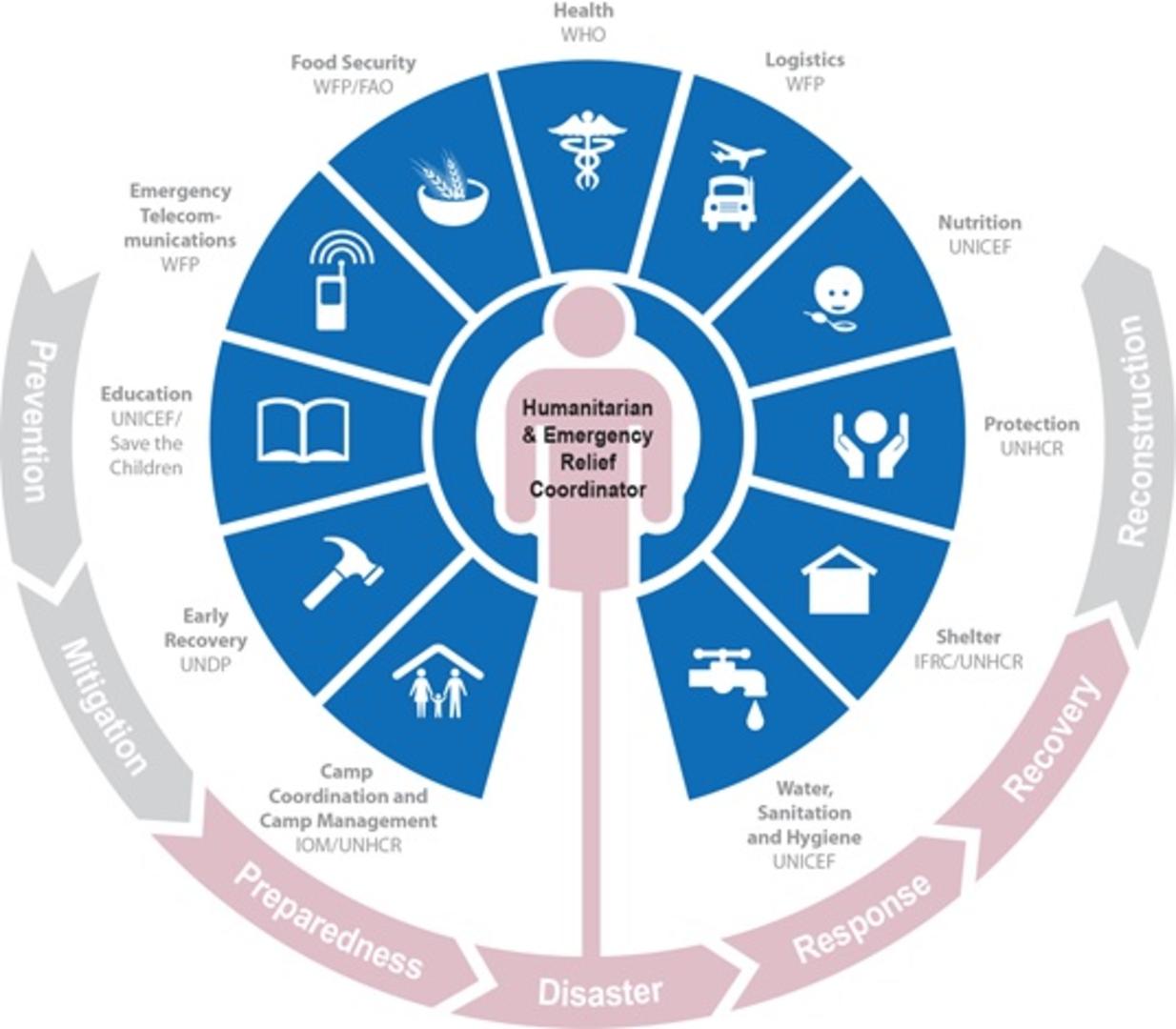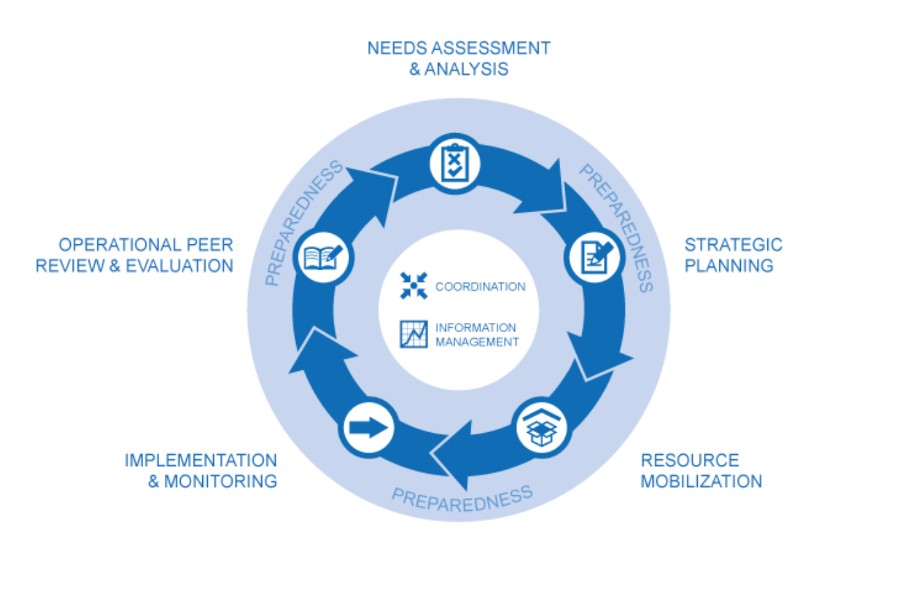Coordination aims to support the delivery of a timely, quality and appropriate humanitarian response to effectively and accountably meet the needs of affected populations, while ensuring greater predictability and partnership. It includes agreeing on roles and responsibilities across all actors, assessing situations and needs, setting common priorities, communicating consistent public messaging as a collective voice, monitoring progress against targets and developing common strategies to mobilize funds.
UNICEF is accountable for supporting sectoral coordination mechanisms for child protection, education, nutrition and WASH and inter-sectoral collaboration prior to, during and after a crisis, in accordance with the Core Commitments for Children (CCCs) in Humanitarian Action which outline coordination as an overarching and sectoral commitment.
Cluster Approach
About Clusters
To ensure clear division of responsibilities and adequate coordination of humanitarian response at both global and country levels, the cluster approach was introduced in 2005 within the wider context of humanitarian reform.
UNICEF has since been designated as a Cluster Lead Agency (CLA) for the Global WASH Cluster and the Global Nutrition Cluster, and as a co-lead for the Global Education Cluster (with Save the Children). In addition, within the Global Protection Cluster led by UNHCR, UNICEF leads the Child Protection Area of Responsibility (AoR).
As the UN agency contributing the most to the cluster system, UNICEF has the capacity to leverage their experiences to drive innovation at policy and programme levels and inform wider debates on coordination, sectoral collaboration and thematic areas in the international humanitarian community.

UNICEF as a CLA: Policy and Guidance on Clusters
Humanitarian Programme Cycle
The humanitarian programme cycle (HPC) is a coordinated series of actions undertaken to help prepare for, manage and deliver humanitarian response. It consists of five elements coordinated in a seamless manner, with one step logically building on the previous and leading to the next. Successful implementation of the humanitarian programme cycle is dependent on effective emergency preparedness, effective coordination with national/local authorities and humanitarian actors, and information management (OCHA)
See the 2025 Full HPC Facilitation Package for links to the most up to date OCHA guidance.
You can reach out to us at any time with questions regarding the HPC.
The 2025 Humanitarian Programme Cycle Guidance Package is coming soon!

Coordination in UNICEF Core Commitments for Children (CCC)
Commitment: Support the leadership and coordination of humanitarian response, along with national and local stakeholders, and in compliance with humanitarian principles
Benchmark: UNICEF, at CO/RO/HQ level, actively contributes to intersectoral coordination and ensures that sectors/clusters under its leadership are adequately staffed and skilled
As a member of the IASC, UNICEF is committed to support humanitarian coordination along with national and local stakeholders (including national and local authorities, CSOs, and communities) and to improve the collective impact of humanitarian response. Whether the cluster approach is activated or not, UNICEF plays a key role in both global and country-level inter-agency coordination for its areas of programmatic responsibility.
Where clusters are not activated, UNICEF is accountable for its respective sectors to support coordination mechanisms. This includes supporting coordination functions, the development of assessment and information management systems and tools, capacity-building and prepositioning of supplies.
Where clusters are activated, as Cluster Lead Agency (CLA) for Nutrition, WASH, Education, and Child Protection Area of Responsibility (AoR) within the Protection Cluster, UNICEF is committed to fulfil the six core functions defined by the IASC:
- Support service delivery by providing a coordination platform to prevent gaps or duplication's
- Inform strategic decision-making by the Humanitarian Coordinator (HC) and the Humanitarian Coordination Team (HCT) for the humanitarian response through coordination of needs assessment, gap analysis and prioritisation
- Develop strategies and plans in accordance with standards and funding needs
- Advocate to address concerns on behalf of cluster/sector members and the affected population
- Monitor and report on the cluster/sector strategy and results, recommending corrective action where necessary
- Support contingency planning/preparedness/national capacity-building where needed


